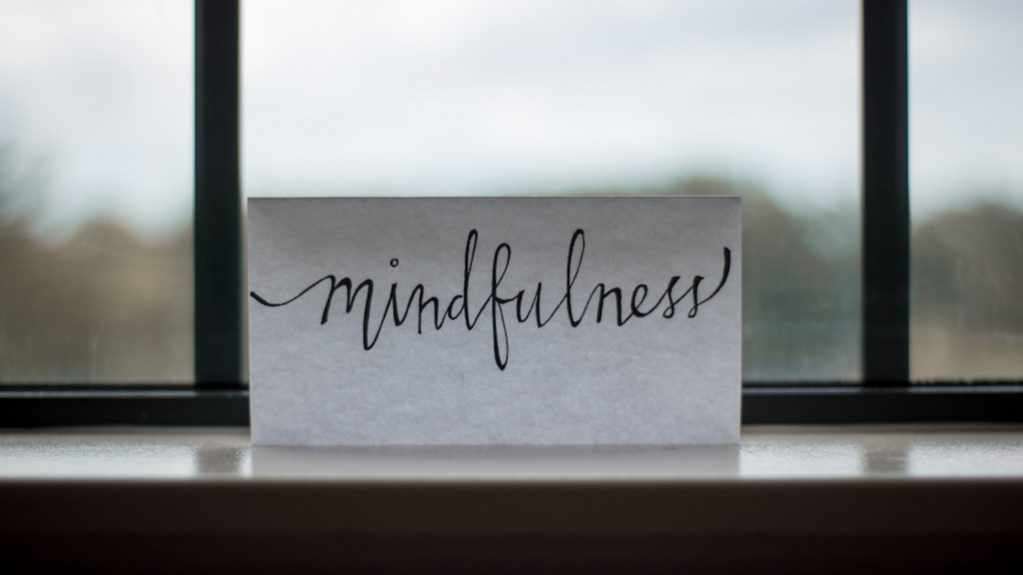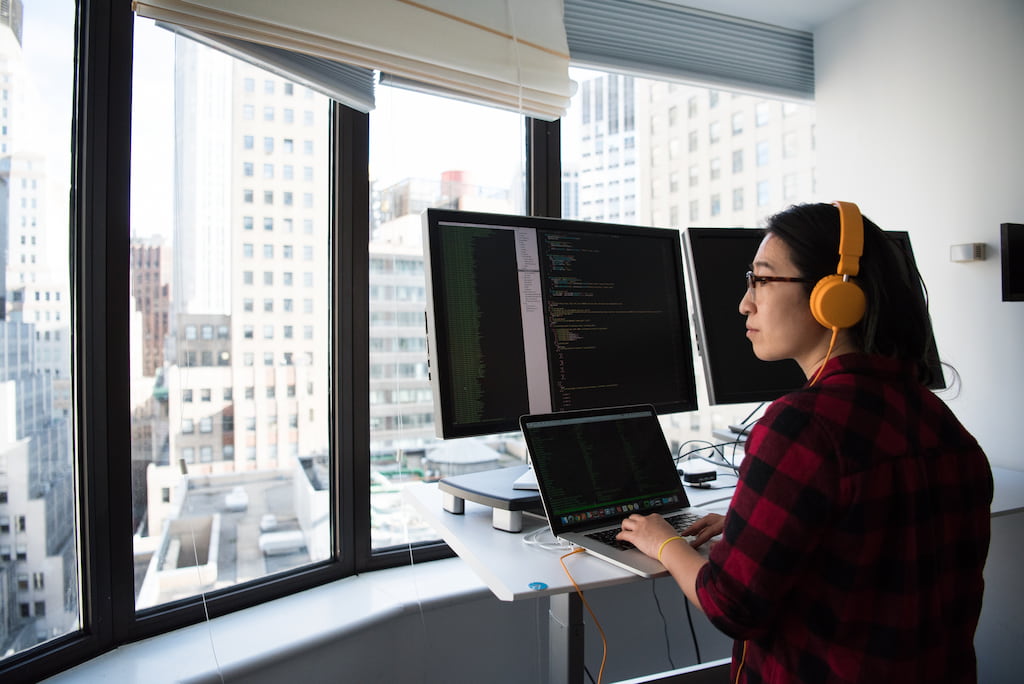What Is Mindfulness?

Contents
Mindfulness Definition
One of the buzzwords we always hear these days is ‘mindfulness’ and carrying out daily habits ‘mindfully’. Though what does mindfulness really mean?
Does it mean that I should stop all of the thoughts that continue to race through my mind? Does it mean concentrating on one thing or doing only one thing at a time? Or, does it mean listening to myself and pausing to reconnect with myself?
As a foundation to the topics we’ll discuss in the Meditopia blog, we wanted to break ‘mindfulness’ down into some simple, easy-to-digest definitions. The literal definition of ‘mindfulness’ is also more complicated than a one-line definition, so we’ll divide it into two parts to better understand all of the facets of ‘mindfulness’ and enhance our approach to meditation.

Being Present in the Moment
Sounds simple right? Well, I actually find this part the most difficult to practice in my life. Whenever I observe myself going through my day to day activities, I find that there’s always something else that’s going on in the back of my mind. Right now, for example, my colleagues are seeing me typing on my computer, but in the back of my mind, I’m thinking about my husband who has a bad cold and who’s feeling miserable at home. I’m wondering how he’s doing and if I can pick up some groceries to make a healthy soup for us when I get home. Our minds always seem to have different tracks playing at the same time, and in this culture of productivity and multitasking, we’re encouraged to keep those tracks going all at once.
It’s the same case when I’m going through the motions, in the middle of activities that are so routine that I don’t need to pay attention to what I’m doing. Think about it; how often have you found yourself parked in front of your house without remembering the drive home, or finishing a meal without really taking the time to taste your food. What about those times when you have to continuously re-read a passage in a book because mid-paragraph your mind wanders and you realize you’ve “finished” the page without a clue what you read. These are all indicators of an anxious mind. And when the mind flies away and continues to hop from the future to the past and back, we lose connection with our bodies. Thus unfolds the 2nd part of the definition of Mindfulness.

Body Awareness: Noticing the present sensations and feelings in your body.
We tend to assume that our mind is independent of our body. Though, have you ever considered that your emotions and thoughts can have a direct impact on your physical health and well-being? Have you considered that our anxieties, worries, sadness, and fears can actually make us ill? When our attention drifts away from the present moment and focuses solely on our worries or anxieties, we begin to disregard our current feelings and sensations. As we detach from how our bodies currently feel in this exact moment, our bodies react by creating tension, a tension we aren’t even conscious of. Participating in physical activities are one of the easy ways to bring your attention to the present moment and to how your body is feeling.
Here’s a personal example of what this looks like. When something upsetting happens between me and my husband or a friend of mine, I shut down; it’s like my throat clamps up, my mind shuts down and I go silent. These are moments when the introvert in me comes rearing its head and takes control over my entire body and mind. Now, in the moment, since I’m unable to express my current feelings, I feel inclined to veil them by keeping myself busy with something else. I essentially inhibit myself with my own feelings, like putting a handkerchief of feelings down my throat to keep my quiet. When I finally start to express myself, I immediately feel the tension in my chest, shoulders, back, and stomach begin to release and relax. My jaw softens, and my neck loosens up.
I know you can relate; I know there are situations that seize control over your body, maybe without you even realizing. What these situations tell us is that our emotions and feelings have a direct and powerful influence on the state of our bodies. By remaining present with the sensations we’re experiencing throughout our bodies, we’re able to more readily reassert control over how we feel through compassionate and patience observation.

The Benefits of Mindfulness: Don’t panic, you’ve got this
Now that we better understand the meaning of mindfulness, the next question becomes if we can even begin to master it. As we practice mindfulness on a more consistent basis, we’ll begin to use it as a tool of recalibrating our thoughts, feelings and physical status. We’ll become more aware of how our thoughts flitter from the future to the past, and be able to more actively draw our attention back to the present moment. The best way to sharpen this tool is simply to practice. Be patient with yourself, this isn’t about rushing through an exercise or even seeing immediate results; this will take time and perseverance, but I assure you it’s something absolutely within your grasp.
Here’s why:
- Mindfulness is a basic skill that we all have naturally. We all have the ability to be aware of the present moment and our present feelings and sensations from birth.
- The ability to be mindful takes more than one approach. Mindfulness can be cultivated with several tried and true methods. Meditation is one of those methods and it doesn’t matter how you do it. Whether you’re sitting, walking, or moving in any way, by simply shifting your attention to what you’re doing right in that moment, you can quickly connect with the present moment.
- Mindfulness doesn’t require you to change who you are. Rather, it allows you to get to know yourself better. A better version of yourself is revealed with mindfulness practice.
- Anyone can do mindfulness exercises. Don’t be intimidated by all of the big words and freakishly serene-looking yogis you see in meditation blogs and posts. Mindfulness is something everyone, regardless of their familiarity with meditation, is able to do.
- Mindfulness will have a positive impact on your life. Having more awareness and more compassion will begin to accompany everything you do and impact everyone around you. It will eliminate unnecessary stress and anxiety and all of your reactions to the stressors and problems you experience will be calmer, softer, more conscious and effective.

How to start practicing mindfulness?
If you have the intention to cultivate mindfulness in your life but don’t know where to start or how to start, mindfulness meditation can be the easiest and most accessible solution. Meditation shifts our attention from our external field and focuses it on what’s happening inside our minds and bodies by noticing your breathing and the sensations in your body, both of which connect you to the present moment. At Meditopia, we designed a special program for mindful newbies to help you get started. You can take a listen to them here, in our “Foundations” series. The more you progress in this program the more you’ll discover mindfulness and the more you’ll introduce it into your everyday life.
So, buckle up and get ready for a mindful journey that will change your life.



